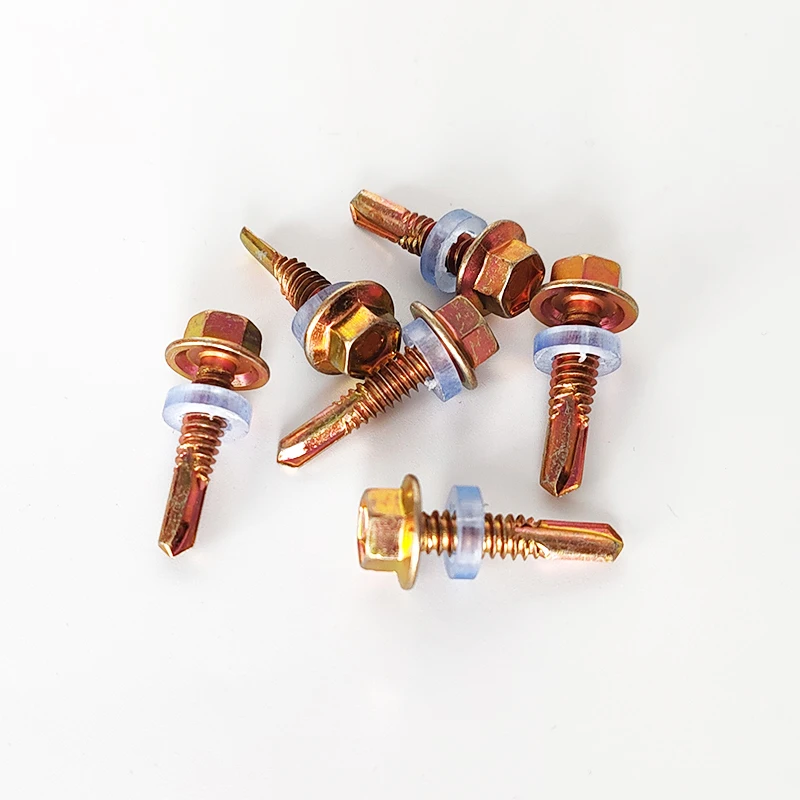Self-Tapping Screws for Heavy-Duty Steel Applications and Industrial Use
Self-Drilling Screws for Thick Steel An Overview
In the realm of construction and manufacturing, the fastening technology employed can significantly affect the structural integrity and longevity of the final product. One such fastening solution that has gained prominence in recent years is the self-drilling screw, particularly when used with thick steel materials. This article delves into the various aspects of self-drilling screws, their advantages, applications, and considerations when working with thick steel.
What are Self-Drilling Screws?
Self-drilling screws, also known as self-tapping screws, are specialized fasteners that are designed to create their own hole as they are driven into the material. These screws feature a drill-shaped point that penetrates thick surfaces, eliminating the need for pre-drilling holes. This attribute provides a significant time-saving advantage, making them an efficient choice for various construction projects.
Advantages of Self-Drilling Screws for Thick Steel
1. Time Efficiency When fastening thick steel, traditional screws often require pre-drilling, which can extend project timelines. Self-drilling screws eliminate this step, allowing for quicker assembly and reduced labor costs.
2. Strong Connection Self-drilling screws provide a robust bond between materials. Their design ensures that they can withstand heavy loads and significant stress, making them suitable for structural applications.
3. Versatility These screws come in various sizes and materials, allowing for customization based on specific project requirements. Whether it’s a temporary structure or a permanent installation, self-drilling screws can accommodate diverse needs.
4. Ease of Use The ability to drill and fasten simultaneously makes self-drilling screws accessible to workers of varying skill levels. This can improve productivity on the job site, as fewer specialized tools are required.
5. Corrosion Resistance Many self-drilling screws are manufactured from materials that are either inherently resistant to corrosion or have protective coatings. This is particularly important when working with steel, as it can be prone to rust in harsh environments.
Applications in Thick Steel Structures
Self-drilling screws find extensive use in industries where thick steel is prevalent, such as construction, automotive, and manufacturing
. Common applications includeself drilling screws for thick steel

- Metal Roofing In the construction of commercial and industrial roofs, self-drilling screws serve as essential fasteners for steel panels, ensuring a weather-tight seal and structural support.
- Structural Steel Fabrication When assembling frames and supports, self-drilling screws are invaluable due to their strength and the ease with which they can be installed, helping to streamline the assembly process.
- HVAC Ductwork In the installation of HVAC systems, self-drilling screws secure metal ductwork together, providing a stable connection that can withstand changes in airflow and temperature.
- Automotive Assembly The automotive industry also utilizes self-drilling screws in assembling various components, ensuring that parts remain securely fastened under demanding conditions.
Considerations for Using Self-Drilling Screws
While self-drilling screws offer numerous benefits, several considerations should be kept in mind
1. Material Thickness It’s essential to select the right screw length and type based on the thickness of the steel being joined. Using an inadequate screw may lead to insufficient fastening, while oversized screws can damage the material.
2. Driving Technique Proper technique is crucial during installation. Over-tightening can strip the screw or damage the material, while under-tightening can lead to a weak connection.
3. Environmental Factors If the structure will be exposed to corrosive environments, selecting appropriate material and coatings for the screws is vital for ensuring longevity.
4. Load Requirements Understanding the load-bearing needs of the application will help in choosing the correct type of self-drilling screws. Different applications may require different grades and designs.
Conclusion
Self-drilling screws are an efficient and effective solution for fastening thick steel in a variety of applications. Their ability to create holes while securely fastening materials makes them a popular choice across numerous industries. By understanding their advantages, applications, and considerations, builders and manufacturers can leverage self-drilling screws to enhance productivity and ensure strong, durable structures. As technology advances, we can expect continued improvements in the design and capabilities of these essential fasteners, further reinforcing their role in modern construction and manufacturing.
-
Wedge Anchor Bolts: Secure Fastening SolutionsAktualnościAug.05,2025
-
Insulation Fixings: Secure and Durable SolutionsAktualnościAug.05,2025
-
Full Threaded Studs: Versatile Fastening SolutionsAktualnościAug.05,2025
-
Expanding Fasteners: Secure and Reliable SolutionsAktualnościAug.05,2025
-
Butterfly Toggle Anchors: Secure and Easy to UseAktualnościAug.05,2025
-
Bracing Solutions for Steel StructuresAktualnościAug.05,2025
